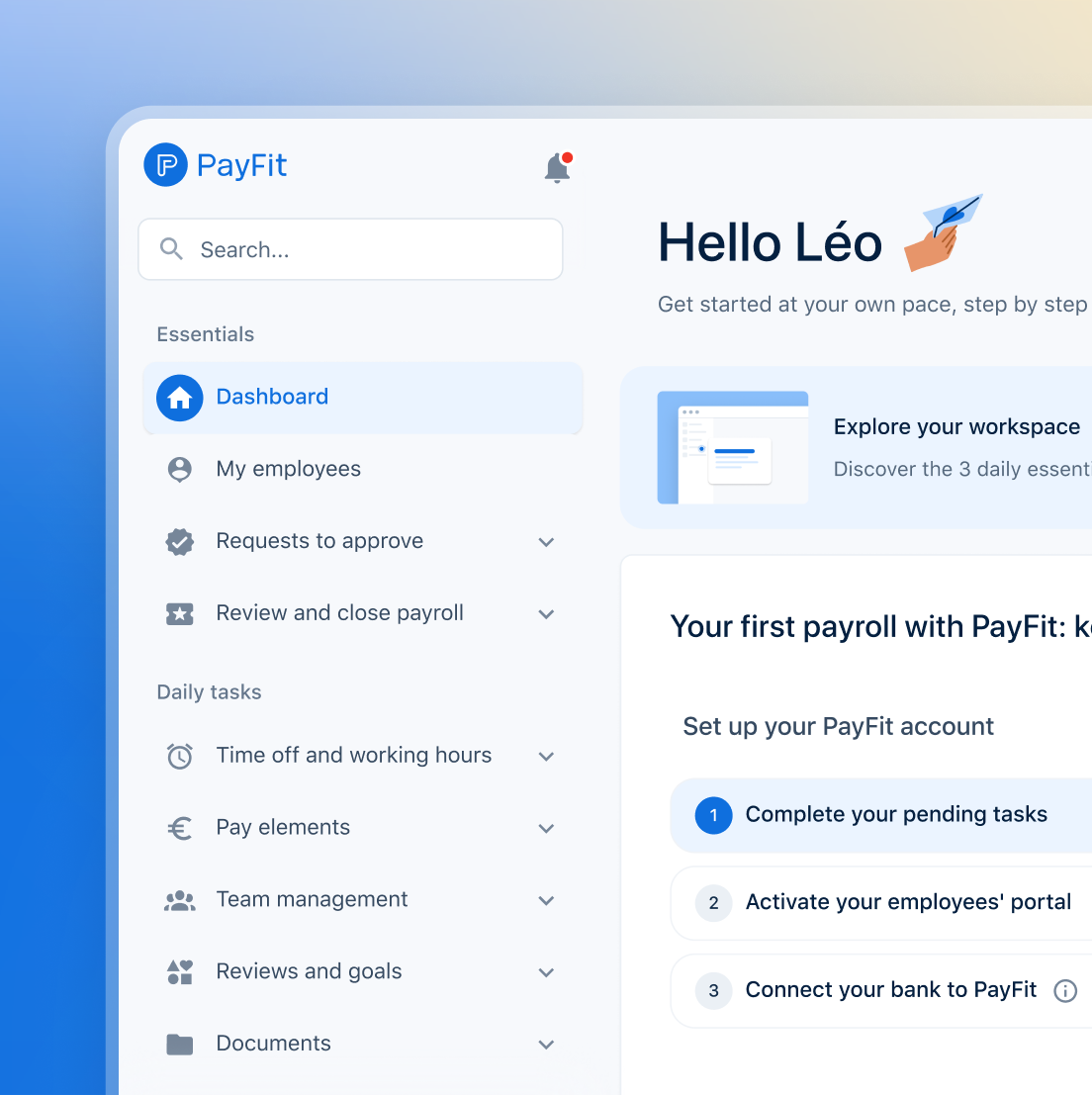✨ Health insurance, now in PayFit - learn more
💷 All the rates & thresholds you need to know for 25/26...right here
✨ The Payroll Journey: Start, Scale & Succeed Globally - learn more
✨ Health insurance, now in PayFit - learn more
💷 All the rates & thresholds you need to know for 25/26...right here
✨ The Payroll Journey: Start, Scale & Succeed Globally - learn more

TUPE, or Transfer of Undertakings (Protection of Employment) Regulations 2006 to give it its full name, is the UK’s implementation of a 2001 European directive of the same name. An important part of UK labour law, it essentially provides protection and reassurance for employees when the company which they are working for is transferred to another, for example via a merger, acquisition or MBO.
This article has been created to provide some guidance to UK employers going through the process, covering what exactly TUPE is and under what circumstances it applies, why it’s important to keep abreast of regulations, the law, steps to take, plus how PayFit can help smooth the process for all concerned.
TUPE is the process whereby an employees’ job transfers over to a new company, their employment terms and conditions transfer, and continuity of employment is maintained. It is a law that protects employees, plus their salary, benefits and conditions, when their employment changes hands.
It applies in two cases.
Business transfers - where all or part of a business moves from one employer to another, including or 2 or more businesses merging;
Service provision changes - where a contract for services provided changes hands. So this could be from an in-house provider to a contractor (or vice versa), or if one contractor relationship ends and is transferred to another.
Transfers not covered by TUPE include asset-only transfers, transfers outside of the UK, transfers of contracts relating to goods or services but without a transfer of a part or the whole of the business, or a company’s shares being sold to new shareholders.
TUPE is a legal requirement, with failure to comply potentially leaving employers liable to an employment tribunal, with the awarding of up to 13 weeks’ pay to each affected employee.
TUPE transfers constitute a contractual change of employment for an employee, one that should be retaining the majority of the previous contractual arrangements. In addition to transfers, TUPE can also lead to redundancy, so it’s recommended to seek specialist legal advice as early as possible before the above transfers or changes are due to come into play. It’s essential that employers are at least familiar with the basics of TUPE law.

Although complex and potentially confusing, there are some basic steps in the TUPE process for businesses to follow.
Consult with trade unions or employee representatives, together with all employees affected by the proposed transfer. Inform them that the transfer is happening, plus why and when, how the transfer is likely to affect them, together with a picture of the steps involved. It’s important to gain buy-in from all parties for what you propose will happen.
Here, you’ll need to provide details to the new employers of all affected employees’ personal details and contract terms. So that’s elements such as holiday entitlement, benefits, pay details, pension arrangements, and so on.
Should the new employer not accept the conditions of a particular contract, this counts as a breach of contract. It’s quite possible that some employees may not want to work for the new employers, in which case they are deemed to have resigned. Consulting legal employment advice in these instances will be crucial.
As the outgoing employer, it’s good practice to establish how any employees impacted by the transfer are feeling. Engage with employees on an ongoing basis, to help address any concerns or drops in performance, and lay the foundations for engagement strategies.
But it’s worth noting that by law, once the transfer has happened, you no longer need to inform or consult affected employees and their representatives about the transfer (except in the case of changes to working practices, or redundancies).
Our team of payroll experts can support businesses undergoing the TUPE process. Businesses that are happy to manage the migration process themselves can have a new account set up, free of charge. But, where extra support is needed, we’re happy to help with that too - we just need informing before the first day of the month prior to any transfer.
PayFit includes a specialised TUPE toggle, which helps to ensure that all contractual arrangements such as annual leave entitlement are carried over when setting up employees under a new entity.
To find out more about how PayFit helps HR teams and small businesses simplify those potentially complex payroll matters, book a short platform demo with a member of the team below.


Learn how to register for Payrolling Benefits in Kind (PBiK) & simplify HMRC reporting. Discover 2025/26 updates & prepare for mandatory payrolling in 2027.

We explore the proposal for a £1,600 monthly universal basic income (UBI) trial in England, considering all the pros, cons and payroll implications.

If you pay Class 1 National Insurance, you can qualify for what’s called the Employment Allowance, and a lower Employer NI bill. Find out how here.

The 2024 Autumn Budget has landed. What does the new Labour government have in store for businesses and their employees? We recap the top announcements made.

Read our guide to answer the question ‘what is small employers’ relief’, to find out how you can qualify as a business, and how much you can claim.

A recap of the 2024 King’s Speech, the announcements affecting businesses and their people teams and how HR leaders can adapt.

See what's new in PayFit
New features to save you time and give you back control. Watch now to see what's possible